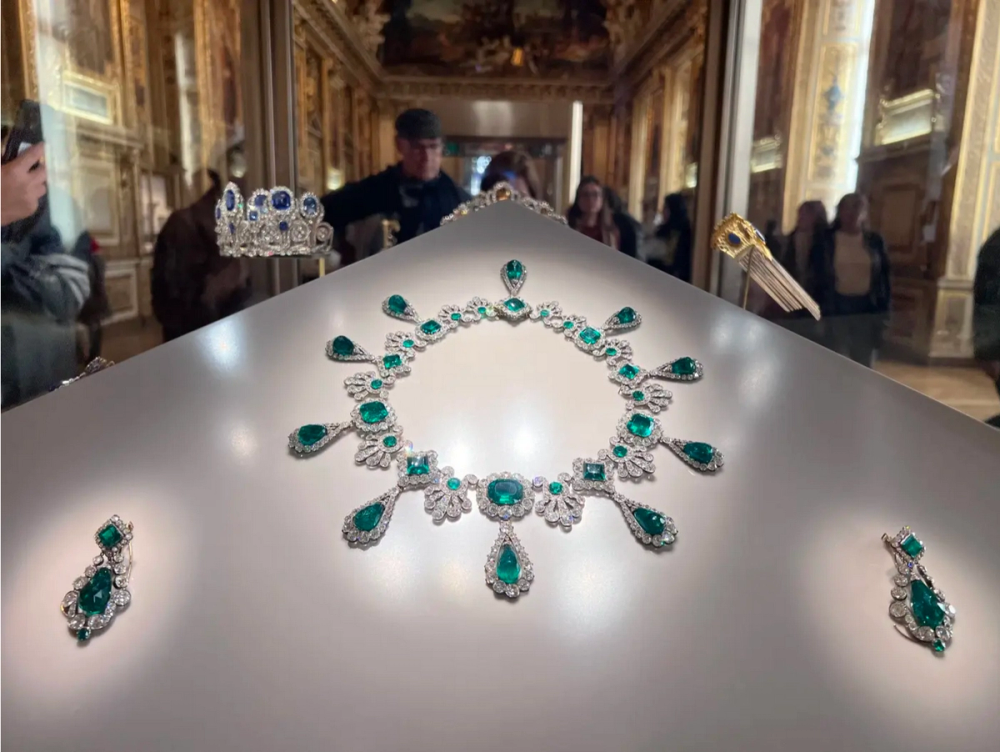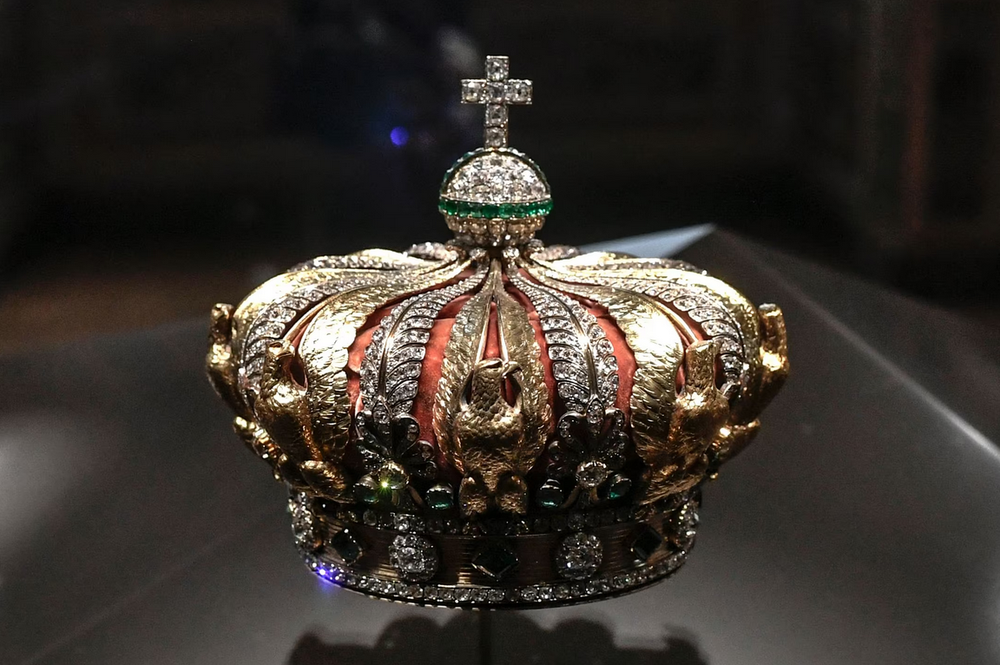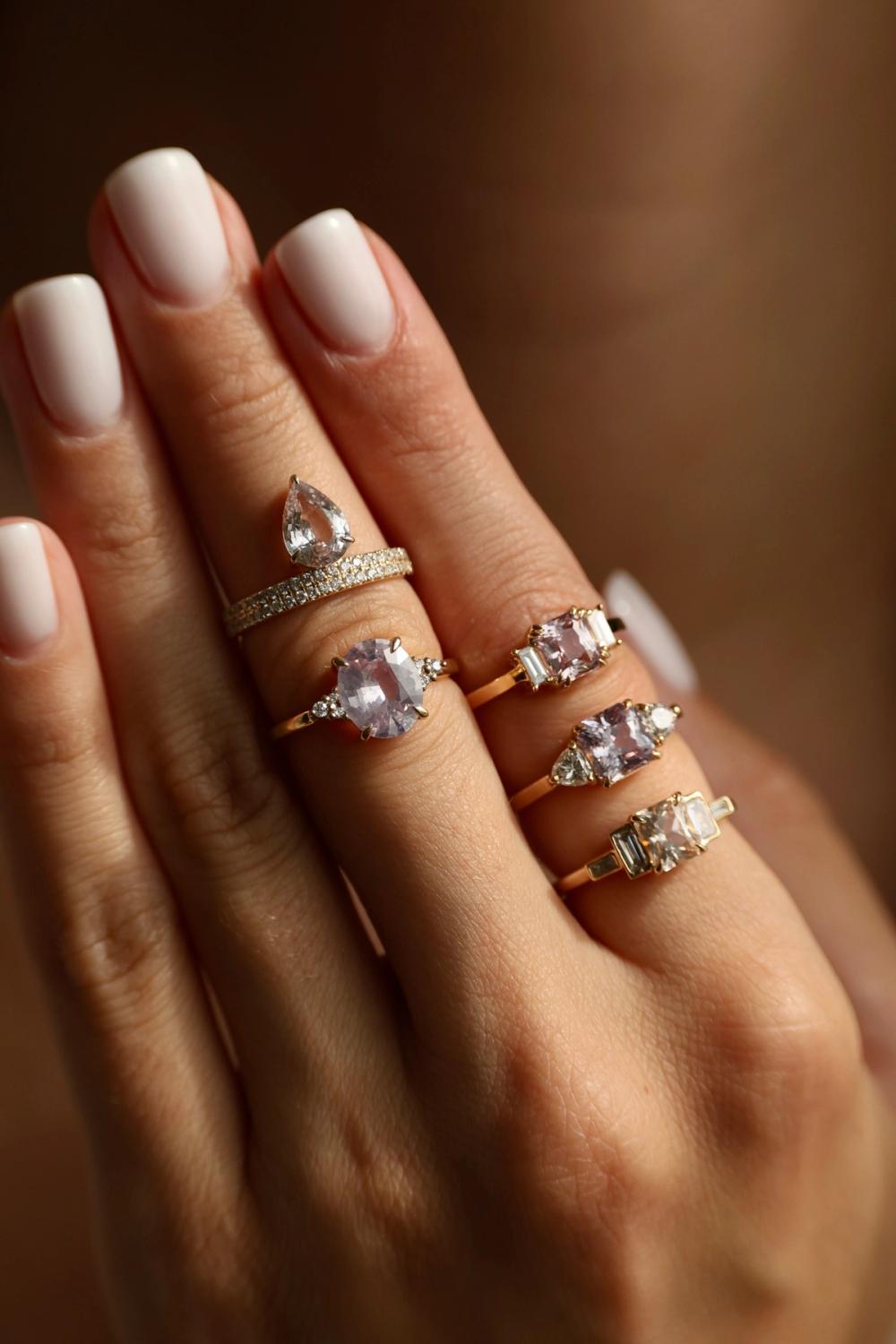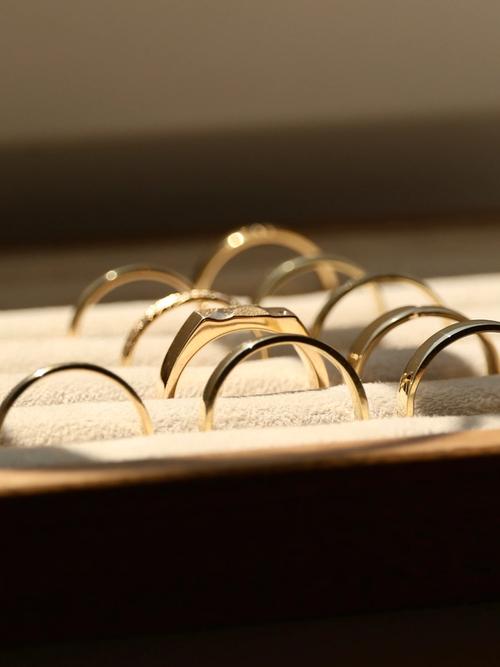Language and currency settings
Change your language and currency settings by selecting your preferences below
Select currency
Select language
The Louvre Museum Heist – A Lesson in Value, Beauty, and Responsibility
When we at Nangi choose to write about the attempted robbery at the Louvre, it’s not because we wish to glorify crime — but because the event highlights something essential to everyone who works with jewelry, gemstones, and value: just how precious both the stones and the stories behind them truly are. Here’s what we know about the incident — and why it matters to anyone who loves jewelry with meaning.

How the Heist Unfolded
Early on the morning of October 19, 2025, a group of burglars carried out a daring operation at the Louvre. At around 9:30 a.m. local time — shortly after the museum opened — the thieves used a mobile lift to reach a balcony facing the Seine and gain access to the Galerie d'Apollon. Two of them cut through a windowpane using power tools, removed the glass display cases containing the French Crown Jewels, and escaped on scooters only minutes later. The entire act lasted between four and seven minutes from start to finish.
The estimated value of what was stolen is around €88 million — but the true loss cannot be measured in money alone; it’s a loss of cultural heritage.
The Jewelry – A Sparkling Part of France’s History
Among the stolen pieces from the Galerie d’Apollon were some of France’s most iconic jewels — including the blue sapphire pendant known as Le Saphir de la Reine, adorned with natural sapphires, diamonds, and rubies. Several of the stolen pieces dated back to the 18th and 19th centuries — an era when gemstones were more than decoration; they were symbols of power, love, and the pinnacle of craftsmanship.

The sapphires in these royal jewels were deep ocean blue with a hint of green — a hue reminiscent of the blue-green sapphires from Sri Lanka that we use in our own designs.
What This Means for Those of Us Working with Gemstones
Gemstones are not only about brilliance and beauty — they embody history, geology, craftsmanship, and time. When gems are stolen and later recut or melted down, they lose both identity and value. The Louvre heist reminds us that what is truly unique is also deeply fragile.
Traceability and Responsibility
At Nangi, we work exclusively with suppliers certified by the Responsible Jewellery Council (RJC). This incident underscores why documented origin and ethical sourcing are so crucial — a gemstone should not only look beautiful, it should be responsibly obtained and handled.
Symbolism and Story
What was taken from the Louvre were not just jewels — they were royal heirlooms, historical collections, and fragments of a nation’s memory. In the same way, we at Nangi aim to ensure that every gemstone we use carries a story you can stand behind — not only with your eyes, but with your heart.

What We Bring to You as a Customer
When you choose a piece of jewelry from Nangi, we want you to feel confident that it’s not only beautiful — but that it holds meaning, makes responsibility visible, and brings joy over time. You receive a piece where the diamond is lab-grown and the colored gemstones are natural — each one chosen with care.
You receive a guarantee that every gemstone has a traceable origin and that the craftsmanship is ethical and quality-assured. You receive jewelry designed to last.
A Reminder of Timelessness
The Louvre heist reminds us that even galleries and museums housing immense treasures are not immune to risk. It shows us that what is handcrafted and unique can never be automated or taken for granted — it must be valued, protected, and worn with respect.
At Nangi, we believe that this awareness is what transforms a piece of jewelry from a mere investment into a true treasure — one that reflects what is genuinely valuable: love, responsibility, and longevity.

Join the Nangi family!
Join the Nangi family!
Subscribe to our newsletter to be the first to know when we release new one-of-a-kind pieces, and gain exclusive access to secret sales and events
Norsk side
Nangi Fine Jewelry © 2024





